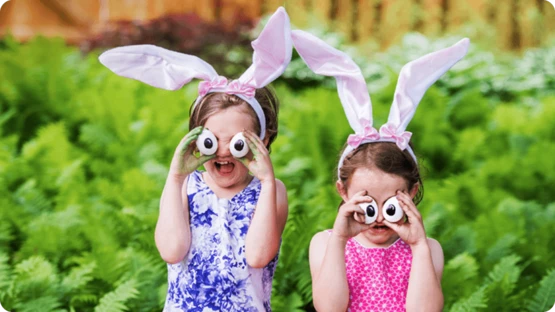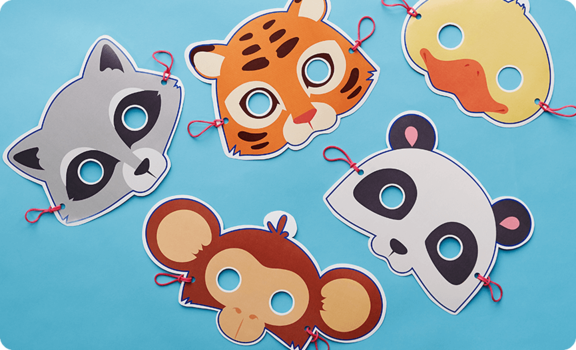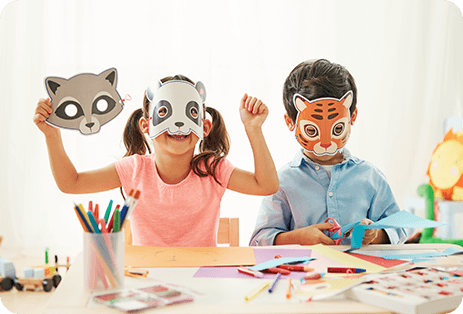Camping: The Great Indoors Activitiy with Children
Forget the weatherman and jump right into the ultimate all-weather act.... read more

Create your zootopia with printable animal masks and have fun introducing them to your kid. Use this teachable moment to show your child the sounds each animal makes or share a fun fact with them. For example, did you know that monkeys groom each other to express their affection?

Spark your child’s imagination with a role-playing activity in your imaginary zoo to sharpen his problem-solving skills. Let him be creative with his solutions, for the wilder his imagination, the better your stories will be!

Here are some fun role-playing ideas:
RELATED ARTICLES


